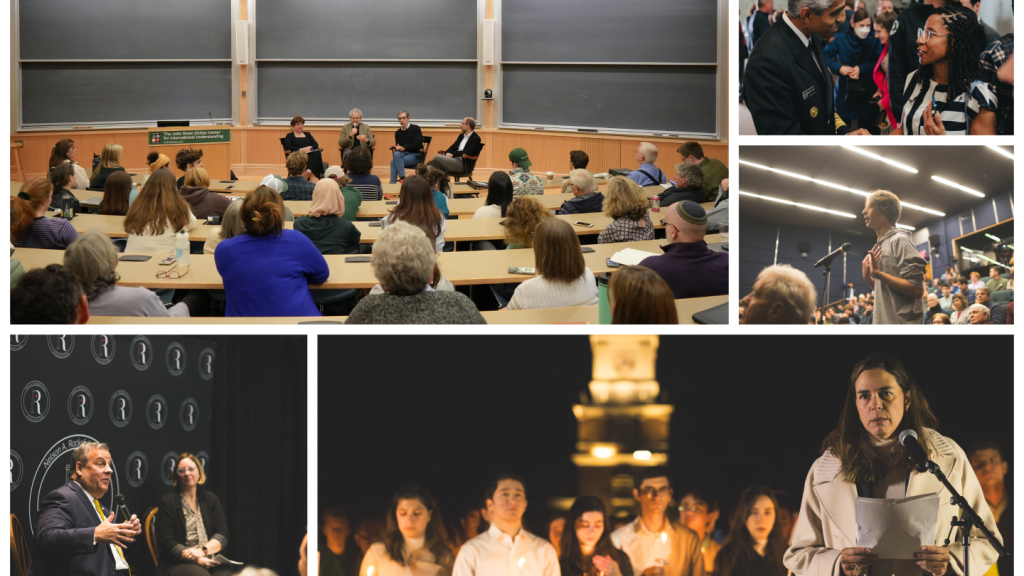Dear Dartmouth community members,
During my presidential inaugural address in September, I shared my commitment to make our campus a place of ideological diversity—where every member of our community feels comfortable expressing unpopular views and questioning others who hold beliefs with which they disagree.
As I wrote in my message to you last week, the urgency and significance of such effort has never been clearer to me than over the past three months. Today, with this sense of importance in mind, I am pleased to announce Dartmouth Dialogues, our shared commitment to expanding programming across the institution dedicated to facilitating conversations and skills that bridge political and personal divides. With every school, center, department, division, and classroom at Dartmouth aligned on this important goal, I know that we will generate more powerful and lasting outcomes.
Dartmouth has a history of exposing our community to different viewpoints—from the Great Issues course introduced by then-President John Sloan Dickey in 1947 to presidential debates held on campus beginning in 1984—Dartmouth Dialogues brings a renewed focus on our ability to think critically, to question, to probe, and reflect, rather than blindly follow a predetermined ideology. Dartmouth Dialogues expands our capacity to cultivate these talents for our campus community—something that has never been more important for the successful future of higher education and the leaders we produce than it is today.
A cornerstone of Dartmouth Dialogues is the Dialogue Project, being co-led by Dean of Arts and Sciences Elizabeth F. Smith and Kristi Clemens, who is serving as the project's director of student and staff initiatives.
The Dialogue Project is based on the idea that engaging in constructive dialogue takes practice, intention, and modeling from experts. And, that brave spaces thrive when members of our community hold their own opinions, do their homework on an issue, and actively and responsibly engage in dialogue with others.
The project will provide training and practice for students, faculty, and staff in empathetic listening, managing emotions, navigating conversations, and finding points of connection across ideological differences. Leading psychologist and best-selling author Marc Brackett, the founding director of the Yale Center for Emotional Intelligence, will be at Dartmouth Jan. 26 to talk with and help faculty, students, and staff build skills that will enable us to have difficult conversations productively.
And, through its One Small Step program, StoryCorps is bringing together community members with different perspectives, two at a time, to record a conversation about their lives—and in the process, discover their shared humanity. We look forward to opening this opportunity up to the extended Dartmouth community including our alumni.
Other upcoming events include several webinars on the Middle East open to all members of the Dartmouth community. In addition, former Sen. Rob Portman, R-Ohio, will speak tomorrow at Tuck and presidential candidate Vivek Ramaswamy is scheduled to speak a week from today, Jan. 17, as part of the Path to the Presidency series. You can find a full list of events here.
As you can see, there is a lot going on through Dartmouth Dialogues. Please take part in these exciting opportunities. And thank you for your work on these important initiatives.
Best,
Sian Leah Beilock
President
